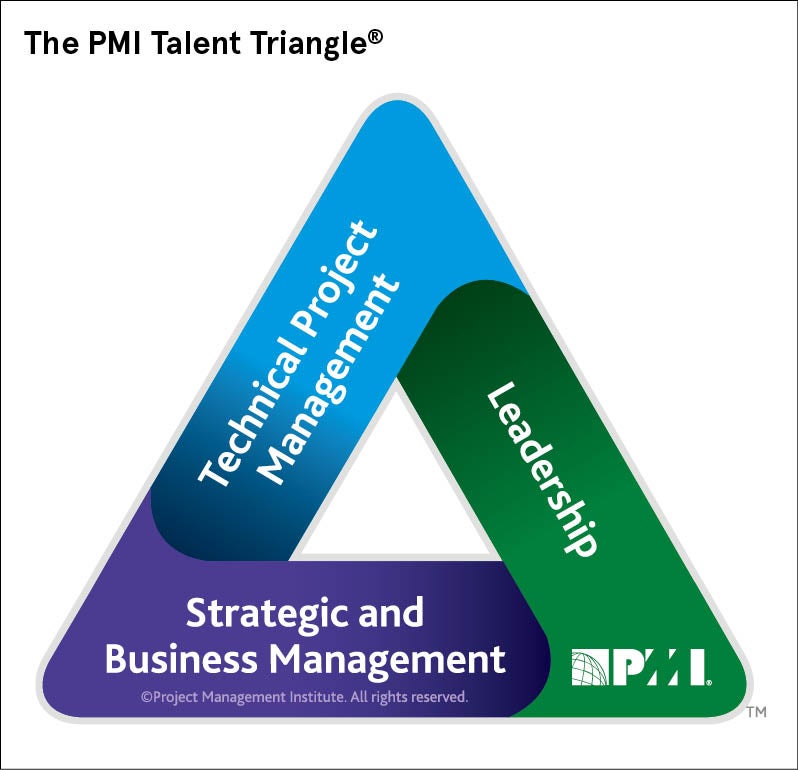 Virtually all organisations recognise two things – talent is one of their most prized assets and, to succeed, they need a winning strategy. What often isn’t recognised is the link between talent and strategy, and how the link between an organisation’s project management talent and its strategy impact the bottom line.
Virtually all organisations recognise two things – talent is one of their most prized assets and, to succeed, they need a winning strategy. What often isn’t recognised is the link between talent and strategy, and how the link between an organisation’s project management talent and its strategy impact the bottom line.
Research consistently confirms that the connection between talent management and successful strategy implementation often goes unrecognised. In Rally the Talent to Win, an Economist Intelligence Unit study for the Project Management Institute (PMI), just 41 per cent of respondents said their organisation has a clear, accepted approach to strategic talent development. A fraction of those reported their organisations provide sufficient financial resources, C-suite attention or employee time for the management and development of the project management talent needed to implement strategy.
This critical link between project management talent and strategy has a direct impact on any organisation’s bottom line. On average, 9.7 per cent or £97 million for every £1 billion invested in projects and programmes is wasted due to poor performance, according to PMI research released in 2017. While this figure represents an improvement over the data from the previous five years, it is still too high. Talent deficiencies are linked to unsuccessful strategy implementation efforts 40 per cent of the time.
On the positive side, the impact of aligning talent management and organisational strategy is substantial. When organisations excel at such alignment, they waste 50 per cent less on their projects, giving them a strong competitive advantage. They also have an average project success rate of 72 per cent. By contrast, organisations that have not effectively aligned strategy with talent management have an average project success rate of 58 per cent.
A significant issue related to project talent is supply. As far back as 2014, four out of five respondents reported that their organisations struggle to find qualified candidates to fill open project management positions and the situation may well get worse. Findings released in Project Management Job Growth and Talent Gap 2017–2027 showed that by 2027 the project management labour force is expected to grow by 33 per cent across 11 countries – the UK, Australia, Brazil, Canada, China, Germany, India, Japan, Saudi Arabia, United Arab Emirates and the United States – analysed in the study.
Within the UK, the project management profession is expected to have some 168,196 new job openings between 2017 and 2027.
While the career outlook for the project management profession continues to outshine the overall labour market, this fact also means there is a serious gap in available talent to fill these positions. The talent gap puts at risk £2.09 billion ($2.7 billion) in the UK alone and poses a severe risk for organisations worldwide that need qualified talent to implement their strategic initiatives, the projects that drive change in organisations.
It’s clearly to an organisation’s benefit to have a strong commitment to talent management and alignment with strategy
The challenge in hiring can be exacerbated by difficulty finding project management professionals with the right combination of capabilities. Historically, when evaluating project management skills, the greatest emphasis has been placed on technical project management and sector-specific product knowledge. However, it has become evident that leadership skills and strategic and business management expertise are equally important, if not more so.
The organisations that have the greatest success with strategy implementation and managing talent look for project management personnel who can demonstrate the combination of technical, leadership, and strategic and business management expertise, what we call The PMI Talent Triangle®.
It’s clearly to an organisation’s benefit to have a strong commitment to talent management and alignment with strategy. Those that demonstrate this commitment have higher success rates with projects and waste 33 per cent less money on strategic initiatives.
To help boost an organisation’s talent management capability and strengthen its strategic capability, we suggest a focus on the following five practices:
- Moving resources from current assignments to next opportunities effectively. This helps facilitate knowledge transfer and boost employee engagement;
- Identifying replacement candidates needed because of turnover or churn. Periodically assess your talent pipeline, and adjust your recruitment practices and processes as required;
- Creating broad succession plans across organisational boundaries. Organisations that have strong alignment of talent and strategy have multiple project management career paths, including ones that are more project focused and more business oriented;
- Integrating talent management across the organisation. This means a focus on performance management, learning and training, leadership development, and recognition rewards;
- Hiring not just for technical skills. Business strategy and leadership skills along with technical skills form the talent triangle – the combination of skills most in demand for project management.
UK organisations that follow this approach are already seeing positive results. “Talent development is a high priority for us and our Project and Programme Management Development Needs Analysis programme has won top industry awards for its capability to help project management professionals improve,” says Tomas Appelgren, head of PPM Academy at DXC Technology.
“Additionally, PMI’s Project Management Professional® certification provides us with a consistent framework and knowledge base for our project managers across the globe, who embody the qualities of the PMI talent triangle. Our project managers, equipped with these skills, are able to execute successfully against projects and programmes, and contribute to accomplishing overall strategic goals.”

Strategic change happens through projects and programmes. I like to remind fellow chief executives that if they can’t see their organisation’s future in their portfolio of strategic initiatives, they have no hope of achieving that future. And the corollary to this statement is there is no possibility of achieving that future without the talent to execute those initiatives.
Whether the goal is improving the bottom line, returning more money to shareholders or staying ahead of your competitors, it all comes down to making the appropriate and necessary investments in talent in accordance with your strategy.
Given there is already a shortage of qualified project talent and projections are for even greater demand for project talent going forward, I recommend that every organisation make investing in hiring and developing talent a strategic priority.
For more information please visit PMI.org/Pulse


